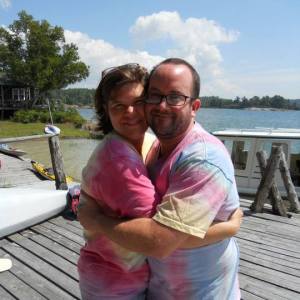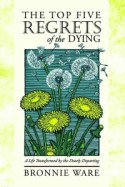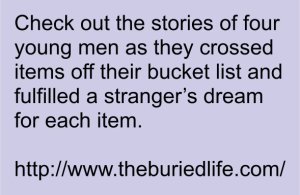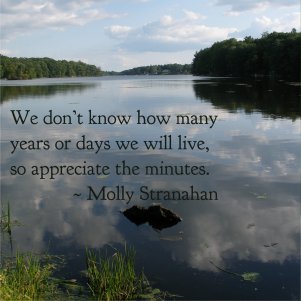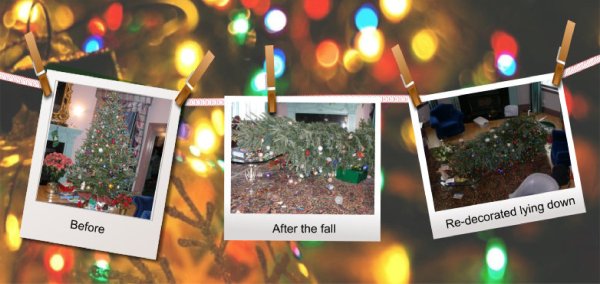 This December I was working on a graduation speech I’ve titled The Secret to Success: Choose Happiness! It led to my holiday wish for you, which is that you find happiness. While we think everyone interprets words the same way, I’m aware that we don’t. For the speech, I defined happiness as “a deep abiding sense of contentment and being able to say, ‘I love my life!’” The graphic above (with an ornament on our tree) came to me as the definition of happiness I wanted to share on my holiday cards.
This December I was working on a graduation speech I’ve titled The Secret to Success: Choose Happiness! It led to my holiday wish for you, which is that you find happiness. While we think everyone interprets words the same way, I’m aware that we don’t. For the speech, I defined happiness as “a deep abiding sense of contentment and being able to say, ‘I love my life!’” The graphic above (with an ornament on our tree) came to me as the definition of happiness I wanted to share on my holiday cards.
 A few years ago I realized that while I love the winter holidays, I was getting overwhelmed by the tasks I wanted to accomplish. I was a Santa Claus wannabe. As I raced to finish Christmas shopping, wrapping and shipping (much of my family lives in other parts of the country), I found stress and resentment was overwhelming my joyfulness. I was sacrificing sleep, getting grumpy, and no longer had time to make cookies.
A few years ago I realized that while I love the winter holidays, I was getting overwhelmed by the tasks I wanted to accomplish. I was a Santa Claus wannabe. As I raced to finish Christmas shopping, wrapping and shipping (much of my family lives in other parts of the country), I found stress and resentment was overwhelming my joyfulness. I was sacrificing sleep, getting grumpy, and no longer had time to make cookies.
I used the Path to Happiness process to uncover the story I was telling myself that was causing my unhappiness. I realized my desire to give the perfect gift was my way of trying to let my family know I loved and appreciated them. When I looked deeper, I was hoping that by showing them – through thoughtfully chosen and carefully wrapped gifts – I loved them, they would love me. However, my growing stress level through the month of December made me aware I had to let go of the belief that my approach to the holidays would buy me love.
This year I wrote about my experiences and it was published at Time Magazine Online as Buying Christmas Gifts Won’t Make You Happier. I had to cut a section about learning that while some people most appreciate receiving thoughtful gifts (which need not be expensive), others prefer words of affirmation, or spending quality time together, and some prefer receiving thoughtful acts of service, or physical touch such as a hug. You can learn more about what Gary Chapman calls The Five Love Languages so that you can give people more of what truly makes them feel loved (and learn your preferred love language).
As you receive this newsletter, Hanukkah is over, Christmas shopping is mostly completed and the end of the year is approaching. But you may still be feeling stress about creating the perfect holiday for your family, or for guests at a party. If you find yourself stressed and resentful, stop and ask yourself what you really want people to experience, and what you are seeking. Do you want them to be impressed by what you accomplished, or do you want them to feel you care about them?
When my perfectionism is triggered, I challenge the story that people will feel most appreciated if I make something perfect for them, and tell myself a different story. Since other people feel our emotions, my stress can cause the people I love to feel guilty about receiving my gifts! Another story that helps me let go of my perfectionism is by doing things at my very best (despite the cost to my sleep and mood) I can make others feel jealous and inadequate. Have you ever felt intimidated about inviting the perfect hostess to your house?
Once I get in touch with what I really want people (including myself) to feel, I ask myself what I can do to create that feeling with the least stress. I use this saying to help me choose what to do next, “If I do the thing that is most important right now, there will be time for everything important.” I let go of everything being perfect so that I can enjoy the moment and say, “I love my life.”
If you are feeling lonely and depressed about the holidays, this newsletter article may not be very useful to you. Being surrounded by other people’s excitement about being with their loved ones can make you feel worse. My family doesn’t get together over holidays, so I try to think of someone who may be alone and invite him or her to share our dinner. The following advice from a previous Path to Happiness Newsletter may help you:
- If you are feeling lonely, think of someone else who may be lonely, and reach out to him or her, whether it is a friend, neighbor, or going to a nursing home, hospital or homeless shelter. Ask others about their lives. You will be amazed by how being kind and showing interest in others improves YOUR state of mind!
May you relax and enjoy these last days of the year. Remember to choose happiness by appreciating what you have and who you are, by cultivating love in your heart and peace of mind.



